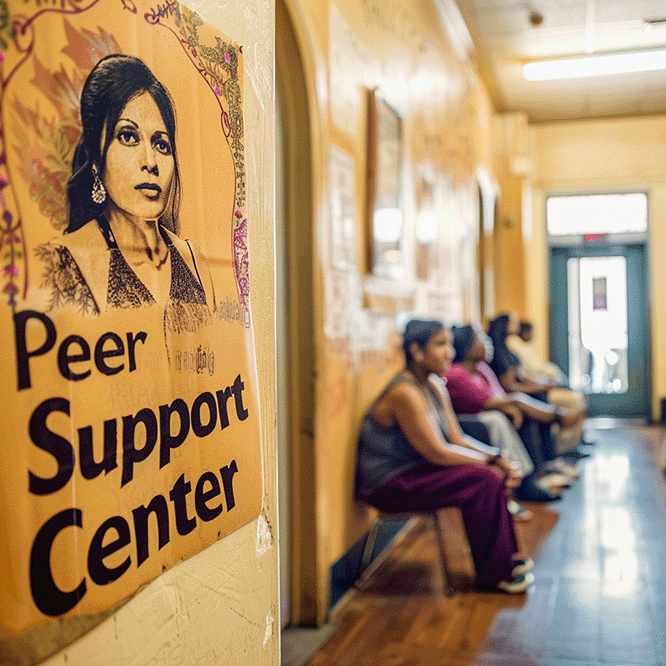Preface:
Oops. I started this post a few days ago under GPT 3.5. So, I started over with GPT 4 and liked the output. My family and I are going through some difficult times, and we both feel as if our outside supports are failing us. I started to ask GPT about standard practices to see if this was normal. After an hour of chatting and venting to the AI, I was inspired to create this post! Total chat time: 90 minutes. Editing and fixing output: about 2 hours.
Introduction:
In recent years, mental health conversations have shed light on individuals’ challenges and the available support systems. But it’s crucial to critically analyze the narratives we encounter and consider perspectives that diverge from mainstream views.
A significant issue worth scrutinizing is the role of pharmaceutical interventions. While medications are beneficial for some, concerns about overprescription and profit-driven agendas are growing. The interplay between Big Pharma and mental health care has led to a reliance on pills as a universal solution, often neglecting individual complexities.
The Influence of Big Pharma on Mental Health:
Pharmaceuticals significantly shape mental health care. While medications can be beneficial, they are often prioritized over alternative therapies or addressing underlying social factors. Although profit-driven motives can play a role, other factors, such as healthcare accessibility and the scarcity of mental health professionals, may also contribute to this trend.
Overprescription of psychotropic drugs is a concern, sometimes leading to individuals receiving prescriptions that don’t fully consider their unique needs. This model can promote medications with limited efficacy or significant side effects, complicating the treatment landscape.
Critiquing the DSM and Mental Health Diagnoses:
The DSM is the cornerstone for diagnosing mental health disorders, providing criteria to categorize conditions. However, its classification system may expand mental health diagnoses to the point of losing nuance.
Oversimplifying disorders can result in people being diagnosed without fully capturing their unique situations, leading to potentially inappropriate treatments.
Societal Factors Shaping Mental Health:
Mental health challenges often intersect with broader systemic issues like economic disparities and social injustice, exacerbating struggles and limiting access to care. To achieve equitable healing solutions, it’s crucial to understand the broader social, financial, and political context surrounding these challenges. By recognizing these interconnected factors, we can work towards comprehensive solutions that ensure everyone has access to the care and support they need.
Embracing Empathy and Holistic Care:
Empathy and understanding should take precedence over labels and pharmaceuticals. Mental health professionals need supportive environments where individuals feel heard, valued, and supported throughout their healing journey. By prioritizing compassionate approaches, clinics, and mental health systems can foster spaces where people comfortably share their experiences without fear of judgment.
Systemic issues like clinical policies often influence the quality of mental health care. These policies can sometimes prioritize efficiency or cost over personalized care, unintentionally limiting access to diverse treatment options. While medications can play a role, clinics should also emphasize alternative paths like psychotherapy, mindfulness practices, and lifestyle interventions to empower individuals with sustainable strategies for managing their mental health. This holistic approach allows care to be tailored to unique needs, ensuring that everyone receives comprehensive, compassionate support.
Advocating for Transparency and Accountability:
Pharmaceutical companies’ profit-driven motives compromise care quality. Advocating for transparency can challenge these agendas and ensure mental health prioritizes people over profits.
Ethical practices like informed consent and shared decision-making must be emphasized. The mental health system should uphold the dignity and autonomy of every individual.
Simplifying Therapies for Sustainable Healing:
Simplified therapies with less medication reliance may offer a more sustainable and effective approach. Fostering coping mechanisms empowers individuals to pursue long-term healing.
Empowering people to build resilience includes developing healthy strategies, social connections, and finding purpose.
Peer Support and the Win-Win System:
Peer support is a valuable system where individuals with shared experiences help each other navigate challenges. This approach nurtures a sense of community and offers practical advice grounded in personal understanding.
By fostering connections between peers, individuals gain a network that bolsters emotional support and shared strategies, creating a win-win system that promotes healing and growth.
Conclusion:
Redefining mental health requires questioning dominant narratives and considering alternative perspectives. By acknowledging the complexities of mental health challenges, we can advocate for a more compassionate approach.
Let’s work toward a mental health system prioritizing people over profits, empathy over algorithms, and healing over pills. Together, we can create a compassionate and equitable world.




Recently, I have gone through a bit of family drama, and also, our mother just passed. We were receiving counseling services through a local organization. We felt let down by the lack of support in the week leading up to and the week after our mother’s passing. So, we fired them.
Since her death late last month, I have gotten a job and found housing! I am happy with how I am creating a new life for myself. This month, a Peer Support Specialist, not a therapist, made a difference for me. The whole point of peer support is to get out and live/fix life.